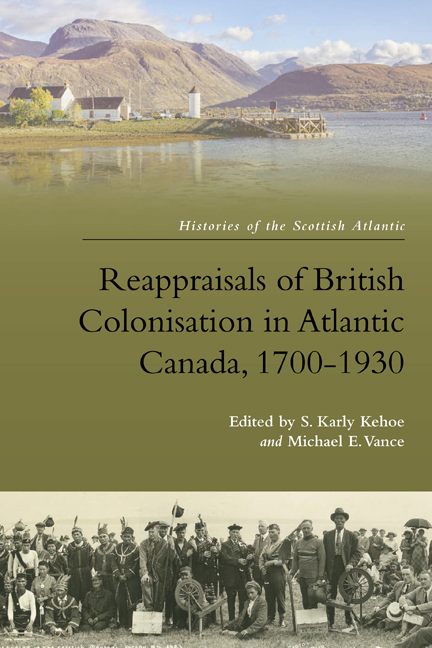6 - Catholic Highland Scots and the Colonisation of Prince Edward Island and Cape Breton Island, 1772–1830
Published online by Cambridge University Press: 10 October 2020
Summary
In April 1772, Alexander Curry, his wife, Isabell Fitzgerald, and their infant son, Duncan, boarded the Alexander at Lochboisdale, on the island of South Uist, and abandoned Scotland forever. Bound for St John's Island, a tiny colony cradled by Nova Scotia in the Gulf of St Lawrence, this young family aspired to a life that was more secure than the one they left behind. Making the journey with them were around 210 others, including Angus Ban and Margaret Og Macdonald of Kinlochmoidart and their two children, as well as Capt. Angus Macdonald, 5th laird of Achnancoichean, Lochaber, his wife, Joanna, and their six children, counting little Donald, a toddler of two years. The departure of these families and countless others was a powerful statement about the grim reality facing many people in the north-west Highlands and Islands.
St John's Island became Prince Edward Island in 1799 in honour of King George III's infant son, and these migrants came to be known as the Glenaladale settlers. What is remarkable about them is that they were the first large group of Catholic Scots to arrive in the Maritimes. By this point, emigration had emerged as a symbol of many people's rejection of the new socio-economic reality. This was especially the case in the Highlands and Islands, where a rapidly transforming clan gentry were becoming increasingly preoccupied with generating cash incomes. It was a difficult adjustment for everyone, but for the Catholics, who also endured intense anti-Catholicism and debilitating penal legislation, it was doubly hard. While emigration offered the prospect of greater economic prosperity, it also promised religious toleration – an experience that would remain out of reach if they remained in Scotland. This chapter uses the arrival of the Glenaladale settlers in Prince Edward Island as a starting point for exploring the expansion of a Scottish Catholic tradition in the Maritimes. Cape Breton, an island that sat to the north-east of Nova Scotia and was independent of that colony between 1783 and 1820, will also feature in the discussion here given its popularity as a secondary destination with Highland migrants.
- Type
- Chapter
- Information
- Publisher: Edinburgh University PressPrint publication year: 2020



